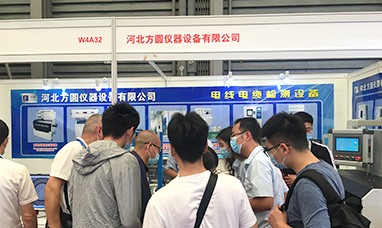manual tensile tester machine
Understanding the Manual Tensile Tester Machine
A manual tensile tester machine is an essential instrument in materials testing, designed to evaluate the mechanical properties of various materials, including metals, plastics, and composites. By applying a controlled tensile force to a specimen until fracture, this machine allows for the determination of critical parameters such as tensile strength, elongation, and yield strength. This article explores the significance, functionality, and applications of the manual tensile tester.
What is a Manual Tensile Tester?
A manual tensile tester is a mechanical device used to measure the resistance of a material to being pulled apart. Unlike automated systems, manual testers require human intervention to operate, which can provide unique advantages, particularly in educational settings and smaller laboratories. These machines typically consist of a loading mechanism, clamps to hold the specimen, a measuring device for recording results, and a hand-operated cranking mechanism.
Key Components
1. Loading Mechanism This device is responsible for applying a precise tensile load to the specimen. In manual testers, this involves a crank or lever that the operator can turn to gradually increase the load on the material.
2. Specimen Holder The clamps are designed to securely hold the specimen in place, preventing any slippage that could affect the accuracy of the results.
3. Measuring Device Manual tensile testers often include a gauge that displays the applied load. More advanced models may integrate a dial or scale to track elongation and other material properties.
4. Frame The structural framework is built to withstand substantial forces, ensuring the machine remains stable and delivers consistent results throughout the testing process.
How it Works
The testing process begins by preparing the material specimen, which must be of known dimensions. The specimen is then securely clamped at either end within the machine. The operator gradually applies a tensile load by cranking the lever and observes the load readings on the measuring device.
manual tensile tester machine

As the load increases, the operator carefully monitors the specimen's behavior. The point at which the material starts to yield (yield strength), elongates to a point of fracture, and ultimately breaks (tensile strength) are all recorded. These readings are crucial for understanding how the material will perform under stress in real-world applications.
Applications
Manual tensile testers are widely utilized in various fields due to their versatility. Some of the primary applications include
- Material Research Engineers and scientists use manual tensile testers to evaluate new materials, aiding in the development of stronger, lighter, and more resilient substances.
- Quality Control Manufacturers implement tensile testing to ensure that their products meet specific standards and specifications, reducing the risk of structural failures in finished goods.
- Educational Purposes In academic settings, manual tensile testers serve as valuable teaching tools. They provide students with hands-on experience in materials testing, reinforcing theoretical knowledge with practical skills.
- Civil Engineering In construction, knowing the tensile properties of materials like steel and concrete is vital for designing safe structures.
Advantages and Limitations
Manual tensile testers offer benefits such as ease of use, lower cost, and the ability to conduct tests without the need for an electrical power source. However, they have limitations, including slower testing speeds and potential human error in operation, which can impact the accuracy of results.
Conclusion
In conclusion, the manual tensile tester machine is a fundamental tool for understanding the mechanical properties of materials. Whether used in research, quality control, or education, its ability to deliver reliable data helps engineers and scientists innovate and ensure safety in material applications. As technology advances, the fundamentals of tensile testing remain critical in an ever-evolving landscape of material science.
-
reliable-performance-testing-with-advanced-aging-chamber-solutions
NewsAug.23,2025
-
advancing-precision-with-profile-projector-technology
NewsAug.23,2025
-
uv-led-ultraviolet-crosslinking-technology-innovation-and-prospects
NewsAug.23,2025
-
ensuring-safety-and-compliance
NewsAug.23,2025
-
electrical-properties-testing-in-modern-applications
NewsAug.23,2025
-
universal-tensile-testing-machine-applications-in-modern-electrical-and-material-testing
NewsAug.23,2025
 Copyright © 2025 Hebei Fangyuan Instrument & Equipment Co.,Ltd. All Rights Reserved. Sitemap | Privacy Policy
Copyright © 2025 Hebei Fangyuan Instrument & Equipment Co.,Ltd. All Rights Reserved. Sitemap | Privacy Policy

